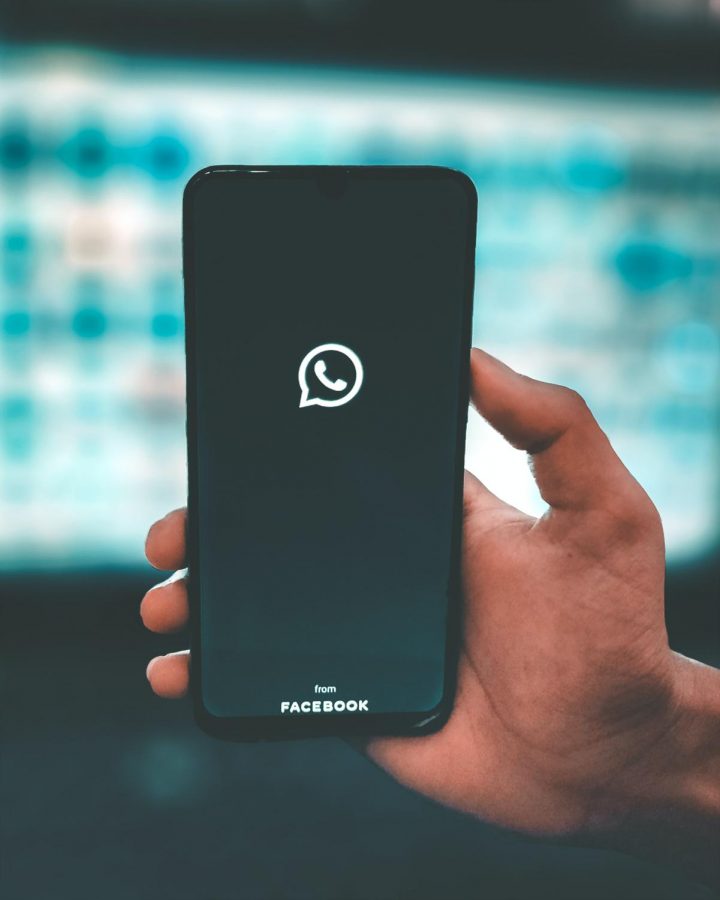“The Social Dilemma”: Review
October 5, 2020
The documentary begins with erudite individuals sharing their experience as someone actively involved in the tech world. However, to my surprise when the screen displayed their job titles I noticed a common pattern; the majority of their job descriptions included the word “former” such as: “former” executive or “former” president. Which raises the question: are they “former” employees because of how addictive and manipulative technology is?
As Gen-Z teenagers, we get a bad reputation as kids who are addicted to our phones so much that we can’t go without them for more than 5 minutes. However, in a technologically advanced society that is only becoming more dependent on our phones, decreasing our cell phone usage is virtually impossible. Especially now, through virtual learning, we rely more on technology than ever. Despite this, after watching “The Social Dilemma” I am more cognizant of the fact that every click, swipe, or double-tap I make is being carefully tracked and recorded.
One main takeaway I have is that “if you are not paying for the product then you are the product”. Our attention is the product being sold to advertisers. Each advertisement we encounter on Facebook, Instagram, Snapchat, or Twitter is competing for our attention. These companies have more information about us then we can even begin to comprehend. They know if we are an introvert or extrovert, our likes, dislikes, and even how long we stare at a photo or ad. Hence why it’s no surprise that on search engines it predicts what you are about to type next. Models are built that predict our next move. This explains the phenomena where you are talking about a product with someone, and once you open up Instagram an ad for that specific product pops up.
These Companies have 3 main goals: engagement, growth, and revenue. Engagement drives up the usage and keeps people scrolling on their endless feeds. Growth ensures we keep coming back and inviting others to join in. Revenue ensures companies flourish and receive money from advertising. Checking our phone is essentially the same as pulling the lever on a slot machine in a casino. Your phone may or may not have a notification for you, but it is not guaranteed. I engage with the metaphorical slot machine way too often, especially now, when learning is virtual. I check my phone whenever I am bored in hopes of receiving the addicting dopamine that comes with getting a notification. But I have the chance of being let down when I see an empty lock screen.
Social media is one of the most addicting drugs because it provides a dopamine release. We fail to realize it, but we are lab rats constantly engaging in small experiments that ensure million dollar companies obtain their desired outcomes, and keep us under their control. Addiction and manipulation-based technology keep us coming back every day.
It’s no surprise that fake news spreads 6 times faster on Twitter than regular news. Fake news makes more money and more often than not, the truth is boring. For instance, COVID myths were spread such as drinking more water will flush COVID out of our system. Plus, the myth that on a certain day in the year because of gravitational pull a broom will stand straight; everyone was testing it out. NASA had to come out with a statement saying brooms stand straight 24/7/365 because “basic physics works every day of the year – not just February 10th”.
For the most part, I was already aware of the ramifications of social media, and certain technology, but overall I enjoyed the documentary. It was too dramatic for my taste; however, simultaneously that’s what made me keep watching. There was this one extremely dramatic scene where a family sat down for dinner and the mom decided to put their phones in a box that would not open until an hour has passed. Her teenage daughter then has a temper tantrum because she couldn’t go without her phone for longer than two minutes, dramatically breaks the jar, and proceeds run upstairs. I understand the message they were trying to send but come on, I mean the vast majority of people can go without their phones for longer than 5 minutes, and even a lot longer.
Additionally, the documentary talked a lot about how we have no privacy, but then have no mention of laws that were created to protect data such as the California Consumer Privacy Act. There is also little to no mention of the positive effects of technology like virtual support groups, a positive community that comes together in hard times, and keeping friends and family connected. All that was mentioned was that technology was originally created with no bad intentions, but got out of hand quickly. Solutions to these problems were seldom described but not well enough to the point where they were helpful. If more solutions to these issues were discussed I would have enjoyed the film more.













Sebastian Pintea • Oct 9, 2020 at 3:53 pm
I really appreciated how Lexy went in depth on an, oftenly, overlooked topic that plagues society to this day. As a person who is a phone owner, I’m always paranoid about the whereabouts regarding my own privacy in not only my social media apps but the very camera of my phone. This article brought light to these issues and I loved how they worded eveything to discuss such an imperative topic in our society
Nicole Lis • Oct 9, 2020 at 11:36 am
Wow I never realized how much technology really controls our lives. As a teenage student I recognize how much technology I use but it really puts into perspective how meaningful everything we do digitally really is.